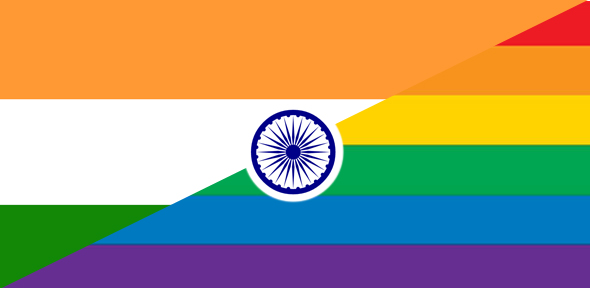A recent article, published in the Indian Journal of Medical Ethics, conducted a comprehensive analysis of 17 articles dealing with LGBTQIA+ issues in India from two prestigious psychiatry and psychology journals (Indian Journal of Psychiatry & Indian Journal of Clinical Psychology). The analysis finds that the psy-disciplines in India have not consistently supported a human rights approach to LGBTQIA+ issues. The position of these disciplines appears to follow the lead of legal and political authorities rather than champion social justice.
“The voice of resistance to inequality and injustice in the psy disciplines have been fairly muted and marginal,” Sudarshan R. Kottai and Dr. Shubha Ranganathan from the Indian Institute of Technology Hyderabad write.
“Mainstream psy disciplines with their dominant medical models of homosexuality exhibited inherent heterosexism limiting its engagement with LGBTQIA+ persons in human rights-based research and advocacy efforts.”

The critical provision of Section 377 of the Indian Penal Code (IPC), which prohibited sexual acts “against the order of nature,” was ruled unconstitutional by the Supreme Court of India on September 6th, 2018. A day before the ruling, the Indian Psychiatric Society (IPS) issued an official statement that homosexuality is not a mental pathology. However, the IPS had previously claimed that homosexuality was a pathology requiring treatment in 2014, after the Supreme Court of India re-criminalized homosexuality in 2013.
“The mental health system appears to have unquestioningly followed the state and judicial order until its stand was questioned by the judiciary and other rights mechanisms,” the authors say. “Mainstream psychiatry in India appears to be dancing to the tune of the juridical-penal system on whether homosexuality is a disease or not.”
Both the IPS and the Indian Association of Clinical Psychologists (IACP) did not take any initiative to promote LGBTQIA+ rights until 2009 when the Delhi High Court ruled favor in decriminalizing homosexuality. In fact, the mainstream psy disciplines tended to pathologize homosexuality and contributed to a negative view of homosexuality.
The researchers investigated two prestigious journals in the psy-disciplines (psychology, psychiatry, and mental health), the Indian Journal of Psychiatry (IJP), and the Indian Journal of Clinical Psychology (IJCP). The researchers reviewed all the articles published in both journals before and after the landmark 2009 Delhi High Court verdict. They investigated how both the IPS and IACP responded to the controversy over LGBTQIA+ rights in India.
“Our analysis found that after the 2009 verdict, the discourse of psychiatrists took a U-turn as some articles published in the IJP supported homosexuality,” the researchers note. Among the 17 LGBTQIA-related articles published in the IJP, 12 articles came out after 2009.
“We found not a single article dealt with homosexuality or queer issues from a rights-based perspective in the flagship journal of the IJCP.” Also, they found two articles published in the 1980s’ in the IJCP that discussed the use of behavioral modification treatment for homosexuality.
The researchers suggest that both psychology and psychiatry in India seem to have resisted speaking about social determinants and discrimination in their journals. This lack of attention to social justice issues may be attributable to both fields’ attempts to position themselves as an objective medical science.
“The quest of psychiatry to become neuropsychiatry is mirrored by the curriculum of clinical psychology which disables clinical psychologists from appreciating social and contextual factors while defining mental disorder,” the authors note.
By waiting for legal challenges to institutionalized discrimination before advocating for LGBTQIA+ rights, the fields of psychology and psychiatry have colluded in the suffering of marginalized groups. The authors conclude:
“We hope that mainstream psychiatry and clinical psychology turn their analytical lenses from chemical imbalances to power imbalance while dealing with mental health issues.”
“If psychiatry really wants to be called modern and progressive, it needs to include all the discourses and incorporate various points of view and there is a need for clinical psychology to look at mental health issues from a social-justice lens so that the wide gulf between activism and academia is bridged.”
****
Kottai, S. R., & Ranganathan, S. (2019). Fractured narratives of psy disciplines and the LGBTQIA+ rights movement in India: A critical examination. Indian Journal of Medical Ethics, 4(2), 100-110. (Link)















In India they can operate (amputate) an eye affected by severe form of glaucoma. But apparently it’s easier not to do it. Lenses are still for sale.
Report comment
I wasn’t aware homosexuality was criminalized in 2013. Hindu text seem to have been very open-minded on sexuality.
Report comment
“Mental health professionals” undermine everyone’s rights, all over the world, too.
Since the “mental health professionals” have been given the right to play judge, jury, and executioner to any person they please, for any satanic reason they please, they’ve eliminated the rule of law. And this, of course, has brought about chaos on this planet.
I’m quite certain a return to the rule of law, and removing the undeserved power given to the omnipotent moral busy body, scientific fraud based “mental health” workers, would be steps in the right direction, if respecting the human rights of all people is the goal.
Report comment